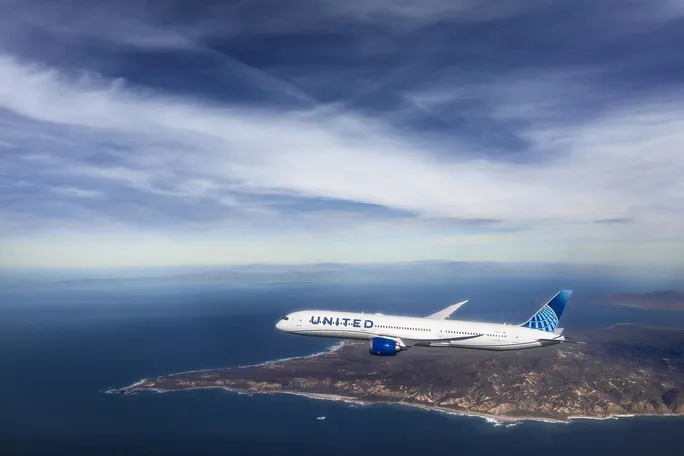What Airlines Stand to Gain in the Ozempic Era
What’s a pound worth? To an airline, it could be millions and millions of dollars saved by shedding it.
Such was the case illuminated recently by a financial analyst who, within a report published by Bloomberg, showed that United Airlines could save $80 million a year if flyers lost just 10 pounds.
Such pronouncements are not new. A famous claim made in 1987 by then American Airlines CEO Bob Crandall held that the removal of a single olive from American Airlines flights would save $100,000 annually.
After determining that most of its customers were not consuming that single olive served with their dinner salad, the airline decided to remove the garnish. The result was a $40,000 savings. It was not the procurement and storage of olives that was in question. It was the weight of a single olive multiplied by the millions of passengers calculated according to jet fuel usage.
In 2023, comparable headlines now appear over the airwaves, this time praising the potential advantages of diabetes medications that have been shown to be effective in weight loss and weight management, according to an airline analyst.
Sheila Kahyaoglu, an analyst at Jefferies Financial, devised a formula that cleared up a conundrum for the airlines and put it in neon: mitigate weight, optimize profits.
Kahyaoglu focused her attention on United. Every United Airlines flight would carry 1,790 fewer pounds if every passenger dropped 10 pounds, saving the company 27.6 million gallons of jet fuel annually. At that rate, United would save $80 million a year, based on the figure of $2.89 per gallon that was determined to mark the average fuel price in 2023.
According to Kahyaoglu, "this benefit should be recognized similarly across airlines."
These words hold significance, as the Centers for Disease Control and Prevention have declared that one in three adults and one in five children in the United States are obese. Obesity is defined as having a body mass index of 30 or greater for adults.
According to the Jefferies analysis, the percentage of people worldwide who are overweight is predicted to increase to over 41 percent this year from 36.4 percent in 2013.
Airlines aren't laughing this off. Each gram matters and has an impact on profit margins and fuel economy. In addition to the lack of seat pocket entertainment, electronic seat amenities, and onboard repasts, passengers can easily observe and feel these trends in seat sizes that have shrunk by as much as five inches in recent years.

United airplane in flight. (photo via United Airlines Media)
According to a 2014 MIT study, airlines might save a lot of money if travelers just emptied their bladders before boarding or didn't bring laptops and smartphones. In 2018, United discovered that printing "Hemispheres" with lighter, thinner paper might save the company nearly $300,000 a year (based on 2018 standards) through the 170,000 gallons of corresponding fuel that could be cut from costs.
Ozempic and Wegovy, the buzzy medications of the moment, might offer airlines the answers they need, if only obliquely. By imitating a peptide released after eating, semaglutides fool the brain into suppressing appetite and further eating, which lowers calorie intake and aids in weight loss.
The medications are pricey, may not always be paid for by insurance, and are intended for patients with diabetes diagnoses. However, weight-watching customers enticed by the promises of dropping 10 to 20 percent of bodyweight without exercising are also using them.
Kim Kardashian is said to have used this method to drop 16 pounds to fit into Marilyn Monroe's 'Happy Birthday Mr. President' dress at the 2022 Met Gala. Elon Musk, Boris Johnson, Amy Schumer, Charles Barkley, and Sharon Osbourne are all mentioned in rumors about famous people who have lost weight using this method.
There is a lack of information regarding the negative effects of these medications long term, and diseases like "Ozempic Face" have been linked to awkwardly-shed fat deposits. Terminating use of these drugs is said to reverse the weight loss benefits.
And while pronouncements by airlines to weigh passengers ahead of boarding (or charge extra based on size) have not been ruled out, incentives for data collection remain a possibility. But it will be a cold day in July before we see non-dieting passengers disappearing from planes like olives, pillows and legroom.
For the latest travel news, updates and deals, subscribe to the daily TravelPulse newsletter.
ContentDisclaimer: The copyright of this article belongs to the original author. Reposting this article is solely for the purpose of information dissemination and does not constitute any investment advice. If there is any infringement, please contact us immediately. We will make corrections or deletions as necessary. Thank you.
Title:What Airlines Stand to Gain in the Ozempic Era
Url:https://www.investsfocus.com









